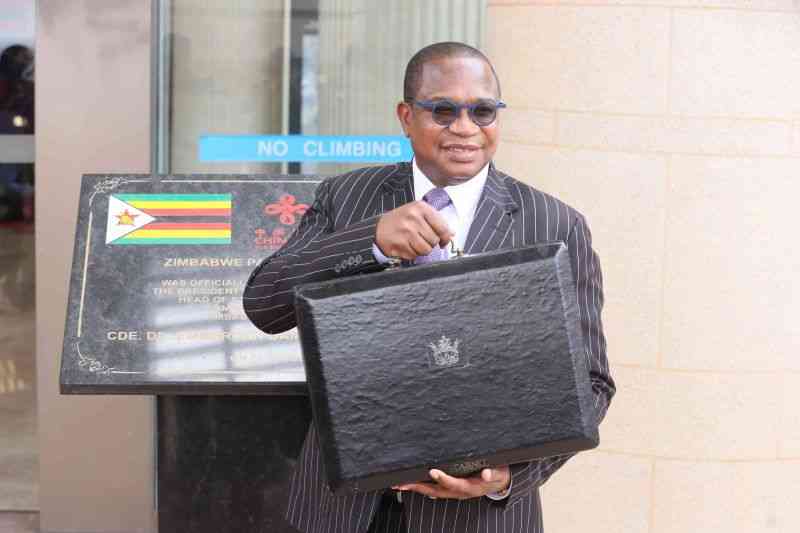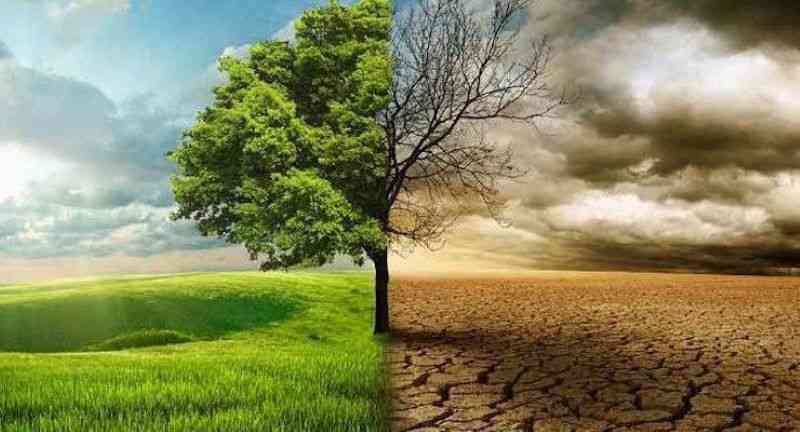
The recently unveiled 2024 budget by Mthuli Ncube has left Zimbabweans in shock.
This is the worst budget ever produced by a Finance minister since independence and the colonial era.
It has shown that the country currently does not have sound leadership, but a well organised and oiled looting syndicate which is always pouncing on the vulnerable and marginalised people in the society.
According to economics, there is no country which has developed through heavily taxing its own people.
It is very important for the country to strike a balance between taxation and economic growth.
We all know that one of the primary causes of the first Chimurenga was the introduction of the hut tax — a tax imposed by colonial authorities on dwellings or households.
Today in Ncube's budget we are witnessing the same modus operandi.
The 'mansion tax' must fall and be resisted and rejected. This is daylight robbery.
- Budget dampens workers’ hopes
- Govt issues $24 billion Covid-19 guarantees
- Letter to my People:They have no answers for Nero’s charisma
- ZMX to enhance farm profitability
Keep Reading
This budget leaves a lot of already burdened consumers scrounging for the little left overs.
It actually pushes the majority who are swimming in deep poverty and plunging them into the deep end of economic quagmire. This 2024 budget is a scam.
A lot of people in Zimbabwe are already choked by poor economic performance and to add salt to an injury the government sees it fit to punish the same economically bruised citizens.
President Emmerson Mnangagwa's government is no different from that of President Lazarus Chakwera in Malawi. The young people are not employed and cannot get jobs.
The only option which is there is to run away. Ncube and his accomplices saw an opportunity to raise the passport fee from US$$120-$US200 which is so ridiculous.
They want to capitalise on massive exodus of the people who are leaving the country in their droves by charging them such an exorbitant fee.
The increase in tollgate charges, passport fees, duty on soft drinks, vehicle registration, fuel levy are just insane and unnecessary.
In other words the government has failed to create economic zones to boost its own economic purse.
Like what the governor of Zimbabwe’s central bank, John Mangudya has said publicly that Zimbabwe has totally failed to attract foreign direct investment and is now focusing on shifting the burden on poor Zimbabweans.
In the next five years most Zimbabweans will be poorer than before.
People have been squeezed like the little toothpaste left in the tube when one wants to brush their teeth. It is really criminal to celebrate on this budget.
The mistake Zimbabweans made in November 2017 was to allow Mamvura to drive the bus.
Next time do not allow Mamvura to drive the bus again because all the passengers will die through speeding and poor driving skills. - Leonard Koni
Email: konileonard606@gmail.com
Twitter - @Leokoni
Growing water scarcity in Zimbabwe a huge threat
Freshwater-related ecosystems include wetlands, rivers, aquifers, and lakes that sustain biodiversity and life (UN Environment 2018).
Although they cover less than 1% of the earth’s surface, these habitats host approximately one-third of vertebrate species and 10% of all species, including mammals, birds, and fish (Fricke et al. 2020).
Water-related ecosystems are also vital for the function of all terrestrial ecosystems, providing regulating, provisioning, and cultural services.
Only 0.5% of the water on earth is usable and available as freshwater (World Meteorological Organization). Furthermore, hydropower is an essential energy source, accounting for 85% of global renewable electricity generation in 2015 but has since declined to around 60% (IEA 2016, 2020), and is also key for commerce and industry.
Notably, decarbonising the energy system can also adversely impact the water system, particularly in the case of increasing hydropower and biofuel production.
Progress on achieving the water and sanitation targets of SDG 6 has been unsatisfactory and uneven.
In 2020, approximately 2.0 billion people lacked access to safely managed drinking water, and 3.6 billion people lacked access to safely managed sanitation services.
One in ten people lacked basic services, including the 122 million people who depend on untreated surface water, mostly in sub-Saharan Africa (WHO 2021).
Poor women and girls, who are responsible for more than 70% of all water collection, spend about 200 million hours a day on this task, undermining their health and livelihood opportunities (Geere and Cortobius 2017).
Target 6.1 of SDG 6 is the achievement of universal and equitable access to safe and affordable drinking water for all. Water is essential not only to health but also to poverty reduction, food security, peace and human rights, ecosystems, and education.
In terms of agricultural water use, farmers across the world, but particularly in sub-Saharan Africa, continue to rely heavily on rainfall for food production.
More than 62 million hectares of crop and pastureland experience high to very high water stress and drought, affecting about 300 million farm households (FAO 2020).
With climate change, temperatures and crop evaporation levels are increasing, and there is growing uncertainty about the timing, duration, and quantity of rainfall, increasing the risks related to producing food and undermining the livelihood security of most rural people.
Fertiliser use on crop land and livestock excreta are key sources of agricultural water pollution, affecting aquatic life and threatening human health.
Projections suggest that nitrogen and phosphorous deposition in water bodies will grow rapidly, particularly in low- and middle-income countries.
With respect to the other SDG 6 targets, such as water use efficiency, water-dependent ecosystems, and integrated water management, progress has been slow and is often not well understood due to the lack of effective monitoring mechanisms and insufficient data.
New, integrated approaches and reinforced efforts to measure and manage water are urgently needed.
Access to safe water, sanitation, and hygiene is the most basic human need for health and wellbeing.
Billions of people will lack access to basic services in 2030 unless progress quadruples.
Demand for water is rising owing to rapid population growth, urbanization, and increasing water needs from agriculture, industry, and energy sectors (UN, 2023).
Water scarcity is projected to increase with the rise of global temperatures as a result of climate change.
While water availability differs dramatically around the globe, differences in access are most often due to politics, a lack of capacity and investment, and flawed water management strategies.
Furthermore, increasing urbanization and changing diets are affecting the demand and supply of water resources for food systems and aggravating water stress in many parts of the world, particularly in water-scarce areas of low- and middle-income countries where coping capacity is often insufficient. Urbanization has contributed to the water scarcity problem in Zimbabwe.
The country’s urban population has been growing rapidly, with over 32% of the population living in urban areas.
The rapid urbanization has led to an increase in water demand, putting strain on the already limited water resources and infrastructure.
The demand for water has outpaced population growth, and half the world’s population is already experiencing severe water scarcity at least once a month.
Water scarcity is projected to increase with the rise of global temperatures as a result of climate change.
Water availability is becoming less predictable in many places.
In some regions, droughts are exacerbating water scarcity, thereby negatively impacting people’s health and productivity and threatening sustainable development and biodiversity loss.
Ensuring that everyone has access to sustainable water and sanitation services is a critical climate change mitigation strategy for years ahead.
Zimbabwe is currently battling a cholera outbreak, with more cases being reported in urban areas.
Residents in urban areas have dug wells without following regulations. Groundwater ends up getting contaminated, resulting in diseases.
One of the primary concerns is the reliance on open wells for accessing water, a practice fraught with peril in densely populated urban areas like Kuwadzana.
Residents end up drilling wells because of the failure by local authorities to provide clean, safe, and portable water, despite having an obligation to provide safe, clean, and potable water in terms of Section 77 of the constitution of Zimbabwe.
Open wells, often contaminated with pollutants and sewage, become breeding grounds for waterborne diseases, including cholera.
The cholera bacteria thrive in unsanitary water sources, leading to the rapid spread of the disease within communities.
The lack of proper sanitation infrastructure, coupled with the burgeoning population in Kuwadzana, for example, exacerbates the vulnerability of residents to cholera.
— Zimbabwe Environmental Lawyers Association










